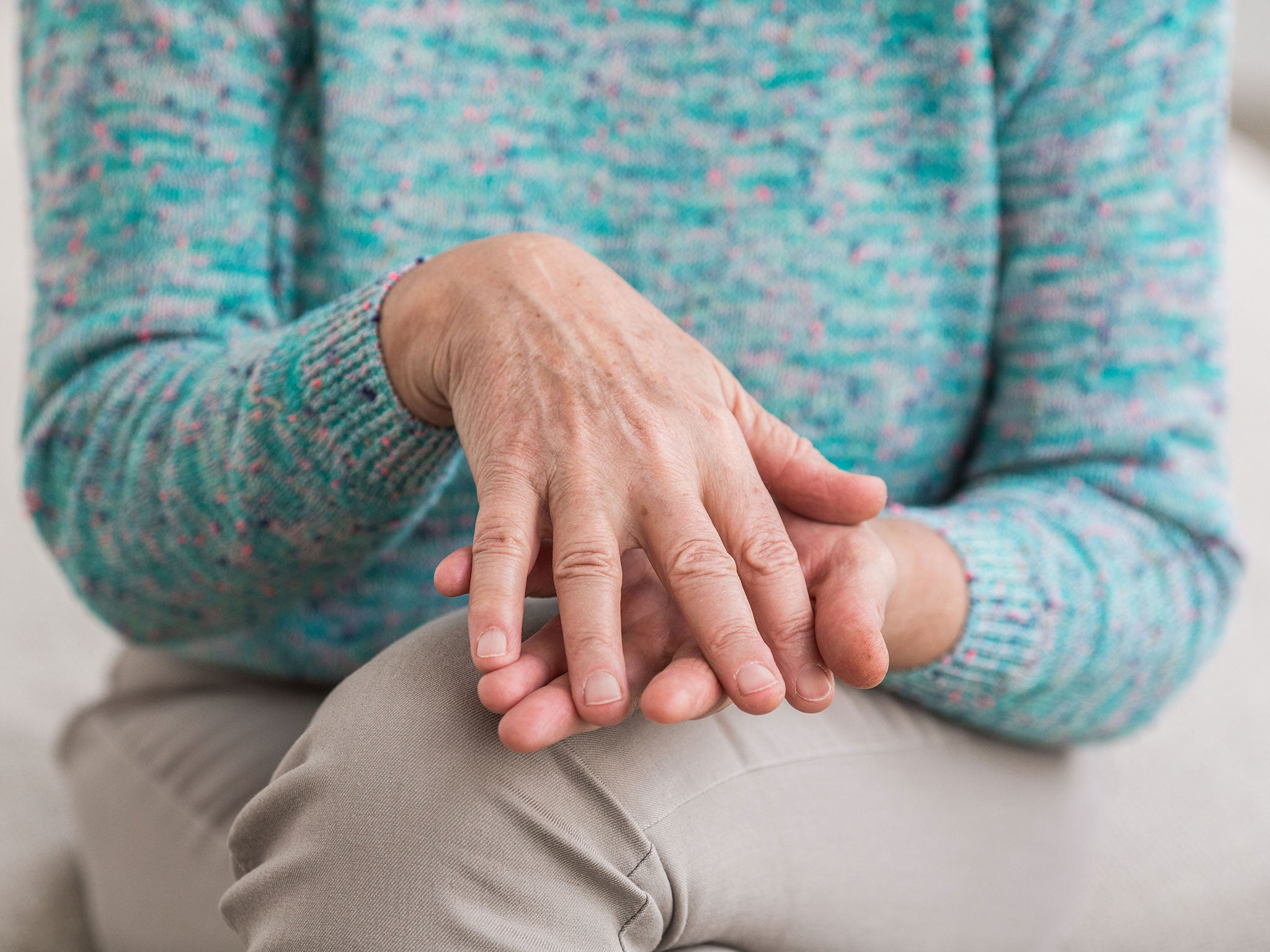Arthritis sufferers offered hope after electrical implants leave patients 'pain free'
“I have my normal life back - within six weeks I felt no pain," said one patient

People suffering from rheumatoid arthritis have been given new hope after some patients fitted with electrical implants reported they had become “pain free”.
The implants, which are embedded in the necks of patients and can be turned on and off at will, work by stimulating the vagus nerve which runs down the body from the brain to the spleen.
Researchers in the Netherlands, working with the British drugs company GlaxoSmithKline, said that more than half of a group of 20 patients who took part in the study experienced significantly fewer symptoms of arthritic joint pain during the trial.
The implant is a small pacemaker-like device implanted under the skin that sends electrical signals to electrodes surgically inserted into the neck adjacent to the vagus nerve, which scientists believe is involved in regulating that activity of the immune system through the spleen.
Patients can switch the vagus nerve stimulator on and off at any time by moving a magnet over the implant. Similar electrical implants have been used for several years in functions ranging from heart pacemakers to deep-brain stimulation for Parkinson’s patients.
However, this is the first time they have been used to treat rheumatoid arthritis, a painful inflammation of the joints caused by the immune system attacking the body’s own tissues.
The study carried out by the Academic Medical Centre in Amsterdam follows an earlier pilot trial on eight patients who volunteered to continue taking part in the research because of the absence of harmful side-effects and the benefits that some patients said they experienced.
Professor Paul-Peter Tak, who led the clinical trial, said that electrical implants could provide an alternative to the long-term use of drugs for treating severe arthritis.
“Even in patients who have failed everything, including the most modern pharmaceuticals, we have seen a clear trend of improvement,” Professor Tak told Sky News.
“We may be able to achieve remission in 20 per cent to 30 per cent of patients, which would be a huge step forward in the treatment of rheumatoid arthritis,” he said.
“It is very appealing to patients because they do not want to take medicines for 30 to 40 years. It’s also restoring the natural balance in the body,” he added.
Monique Robroek, an arthritis patient who had the implant fitted under her skin a year ago, said she used to be in so much pain that she unable to walk across a room despite taking the strongest drugs. Now she is pain free and has stopped all medication. “I have my normal life back - within six weeks I felt no pain. The swelling has gone. I go biking, walk the dog and drive my car. It’s like magic,” she said.
GSK, which funded the study as part of its £32m investment in the field, said that it hopes to develop the device further so that it could be used for a range of chronic diseases that may benefit from electrical nerve stimulation.
“We believe that one day, tiny devices smaller than grains of rice could be used to restore health in a range of chronic diseases centred on organs and biological functions,” a spokesman said.
Judi Rhys, CEO of charity Arthritis Care, urged caution because of the small number of patients involved in the trial, but added: “With such dramatic results we can only hope that this treatment does deliver and will reach the hundreds of thousands of people with RA in the UK.”
Join our commenting forum
Join thought-provoking conversations, follow other Independent readers and see their replies
Comments